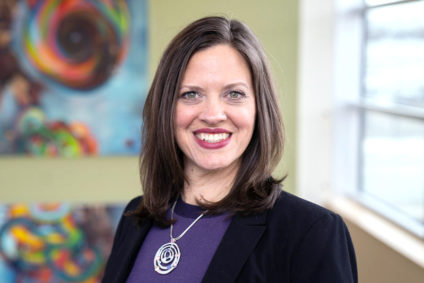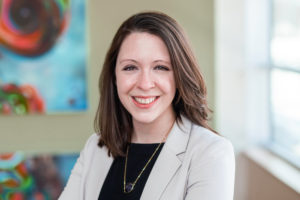The Grantmaking School: Rethinking Professional Development for Donors and Grantmakers in the Midst of Change


Philanthropy is a mission-driven sector.
Individuals and whole families come to this work often because they become passionate about a specific issue or topic area. Your community faces a natural disaster and you decide to seek a job with an organizational fighting homelessness. A child’s curiosity is sparked by a school visit to a local nature center, and now your family (or family foundation) wants to support a series of after-school programs at that nature center, or even reimagine your grantmaking around climate change. The scale moves fluidly from hyper-local to global, and back again. It is passion for the mission that drives that desire for impact.
Yet, it is the practical skills we cultivate as grantmakers and donors that enable us to develop partnerships, assess proposals, evaluate programs, and convene changemakers.
In philanthropy, we need both passion and practical skills in order to transform our communities and our world for the public good. Passion we have — but across our organizations and networks, there is a great hunger for the professional education that can build our practical skills.
“In philanthropy, we need both passion and practical skills in order to transform our communities and our world for the public good.”
For nearly 15 years, we’ve been working with experts across the field to design and deliver The Grantmaking School: accessible learning opportunities in skill areas like proposal analysis, financial analysis in grantmaking, strategy and evaluation, and other topics. We’ve reached over 2,000 grantmakers and donors through open enrollment courses and customized opportunities offered through regional associations and individual foundations. Our in-person, highly interactive programs have been offered several times a year in Detroit and Grand Rapids, Mich.
Enter: a global pandemic and historic public movement for Black Lives Matter.
As our colleague Emily Brenner noted in a recent blog reflecting on how the COVID-19 pandemic has changed us all,
Moving more of our workshops online was always something we wanted to do, but lacked the full staff capacity to explore. It was front-and-center on our future to-do list. Well, the future is now.
In the past four months, we have redesigned all of our courses from The Grantmaking School to move online. We’ve split full-day courses into multi-day blocks, adapted in-person exercises for adult online learning, and, along with the rest of the world, we learned how to use Zoom. We really learned how to use Zoom.
Now, our course calendar for the rest of 2020 is available online — and so is every course.
While this transition has been challenging, it has also been energizing. Our calendar has been open since early July, and we are already seeing registrations from philanthropy practitioners in parts of the country we’ve never reached before. The opportunity to bring together passionate people from across the U.S. (and maybe even abroad!) during this time of profound distancing is a unique gift.
A second, more critical imperative also faces us — it faces all of us. The philanthropic sector as it exists today suffers from the same systemic issues of racial inequity, injustice, and white privilege that afflict every sector of our society. Countless individuals and organizations have called on all of us to do better. These calls come from the same place as philanthropy itself: a love for humankind.
As we reviewed and redesigned many aspects of our Grantmaking School courses this year, we recognized the need to do better with how we teach the practice of philanthropy and how we support practitioners of color. With the help of Dr. Juan Olivarez, our Scholar in Residence for Diversity, Equity, and Inclusion (DEI); our own internal DEI Committee; and expert peers and resources from the field, we have been working deliberately to better embed equity and inclusion within our offerings.
“As we reviewed and redesigned many aspects of our courses this year, we recognized the need to do better with how we teach the practice of philanthropy and how we support practitioners of color.”
For example, as of April 2020, our Financial Analysis in Grantmaking course now opens with a discussion of “standard” financial due diligence as compared to inclusive financial due diligence. Participants explore ways to recognize, understand, and address racially biased financial analysis practices even before we begin considering a proposal or financial statement. Cohorts return to that discussion throughout the two-day workshop, actively applying those concepts to the exercises. Our hope is that experiences like these will help raise awareness of how current practices disadvantage leaders of color and organizations that serve people of color and give practitioners the tools they need to apply a more equitable approach to grantmaking.
Relatedly, we sought the input of subject matter experts from across the sector as we develop and finalize a program officer competency model. That model is already serving as the foundation for how we redesign and deliver our professional development offerings. Inclusive practice is a key component of this model. It’s not just an add-on; DEI is an integral part of how we approach the practice of philanthropy.
We know this work will be ongoing, and we look forward to engaging with you and with colleagues across the field on how we can ensure The Grantmaking School supports equity and inclusion in philanthropy. This is how we marry passion and practical skills at the Johnson Center, and we invite you to join us.
Click here to view our full calendar of open courses from The Grantmaking School.

